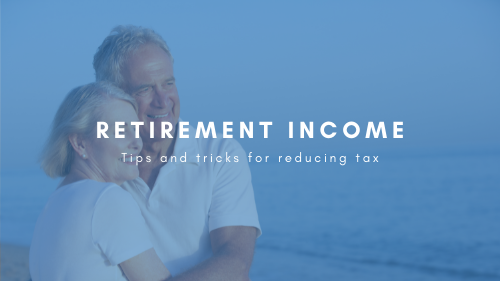Essential tips and tricks for paying less tax and keeping more of your retirement income
Most of your retirement income sources are taxable; Canadian Pension Plan (CPP), your personal pension plan (if you have one) and income from your RRIFs. However, if you’ve set up a TFSA in addition to your RRSPs, then you’re in luck – money you take out of your TFSA isn’t taxable!
We have some tips on combining savvy withdrawal strategies with retirement-related tax deductions to keep more of your retirement income.
Make a Plan
Determine all the different sources of retirement income you’ll have – don’t forget about things like annuities, GICs or income from a rental property if you have one. Once you have a complete list, a professional financial advisor can give you tips on when it’s best to start collecting pension income as well as how much to withdraw from your taxable investments. A strong plan can help reduce the amount of tax you have to pay and extend the life of your retirement income!
Split your pension income
If you have reached the age of 65 and have a pension, you can split up to 50% of the pension income with your spouse. Splitting your pension with a lower-income spouse can add up to savings, as this will cut down on the amount of taxes you’ll have to pay overall.
While rewarding, the process to split your pension income can be complicated, so it’s best to get professional advice before starting this process.
Buy an annuity
Annuities are a financial product that will provide you with a guaranteed regular income – a good choice if you are worried about your retirement savings running out.
These are the most common types of annuities:
-
Life annuities provide you with a guaranteed lifetime income, with the option for the annuity to be paid to a beneficiary after you die.
-
Term-certain annuities provide guaranteed income payments for a fixed period. A beneficiary or your estate will receive regular payments if you die before the term ends.
-
Variable annuities will provide you with both a fixed income and a variable income. The variable income will be based on the return of the annuity provider on the performance of the investments your annuity provider invests your money in.
All types of annuities will spread out the income from your retirement savings to lessen the tax you pay each year.
Take advantage of tax breaks
Now that you’re retired, there are retirement-related tax breaks you need to know about. Here are some of the tax breaks or credits you may be eligible for:
-
The age amount
-
The home accessibility tax credit
-
The medical expense tax credit
-
The disability tax credit
-
The pension income tax credit
We can help!
We can put together a plan that helps you keep more of your retirement income – call us today!


Recent Comments